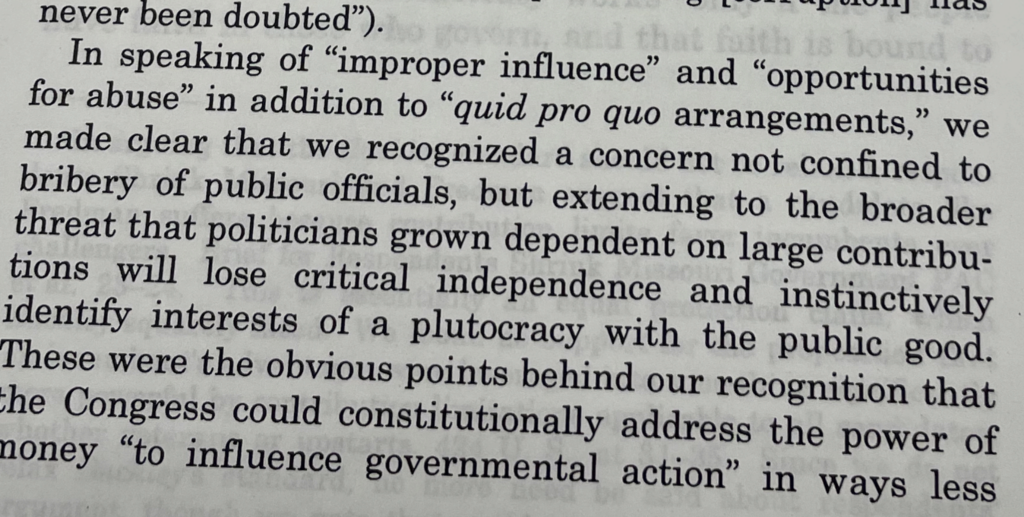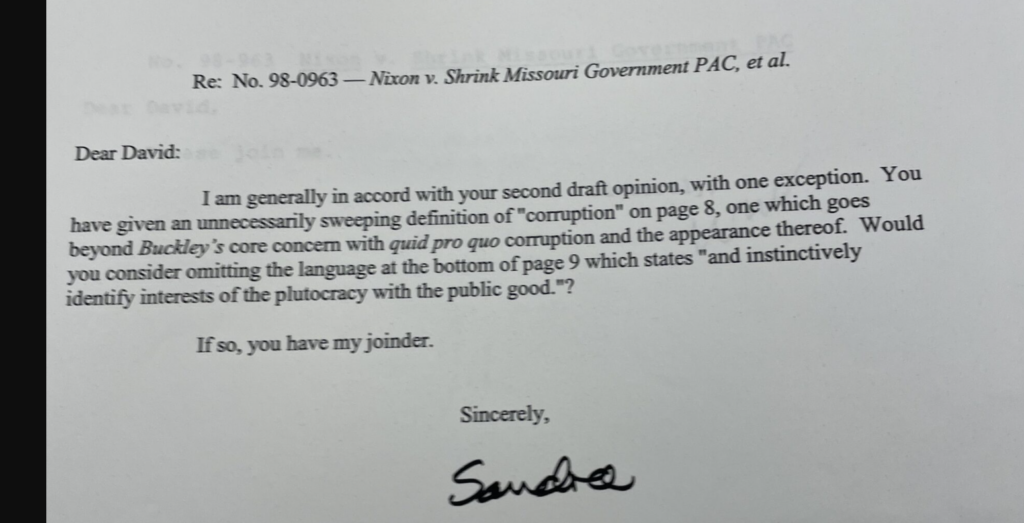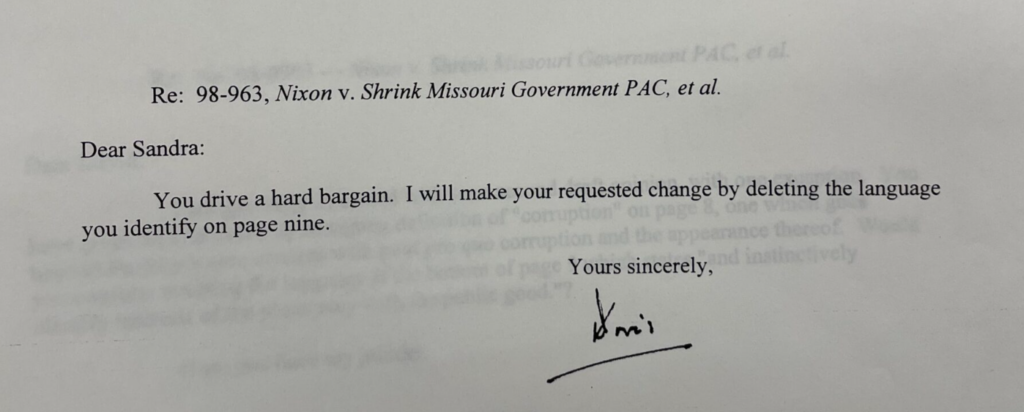I have written this piece at Slate. It begins:
More than 20 years ago, then-Supreme Court Justice David Souter tried to warn that big money in politics risked turning United States officials into tools of an emerging “plutocracy.” We now know from recently-released case files that Souter had to strike the language in his draft Supreme Court opinion in a 2000 campaign finance case, Nixon v. Shrink Missouri Government PAC, as the price to secure Justice Sandra Day O’Connor’s vote. It’s too bad, because Souter’s warning is one that American political leaders, including justices on the Supreme Court itself, needed to hear. That warning was never made and thus never heeded. Today, American plutocracy—from Congress to inside the walls of the court itself—is alive and well.
Justice Souter was one of the most important, if underrated, voices among Supreme Court justices on questions of money in politics. His opinion in Shrink Missouri and similar cases in the early 2000s offered a jurisprudence of the First Amendment that is so different from the current Citizens United-fueled era in which limits on money in politics are mostly meaningless.
More than 20 years ago, then-Supreme Court Justice David Souter tried to warn that big money in politics risked turning United States officials into tools of an emerging “plutocracy.” We now know from recently-released case files that Souter had to strike the language in his draft Supreme Court opinion in a 2000 campaign finance case, Nixon v. Shrink Missouri Government PAC, as the price to secure Justice Sandra Day O’Connor’s vote. It’s too bad, because Souter’s warning is one that American political leaders, including justices on the Supreme Court itself, needed to hear. That warning was never made and thus never heeded. Today, American plutocracy—from Congress to inside the walls of the court itself—is alive and well.
Justice Souter was one of the most important, if underrated, voices among Supreme Court justices on questions of money in politics. His opinion in Shrink Missouri and similar cases in the early 2000s offered a jurisprudence of the First Amendment that is so different from the current Citizens United-fueled era in which limits on money in politics are mostly meaningless.
Writing in Shrink Missouri, Souter opined that limits on huge donations were essential to a functioning democracy and the public’s confidence in it: “Leave the perception of impropriety unanswered, and the cynical assumption that large donors call the tune could jeopardize the willingness of voters to take part in democratic governance.” This was an important warning, but Souter wanted to go much further. Souter’s original note of caution, not previously reported to my knowledge, was that there existed “broader threat that politicians grown dependent on large contributions will lose critical independence and instinctively identify interests of a plutocracy with the public good.” Tragically, this is very much what has happened in the years since the Supreme Court’s balance of power shifted when Justice O’Connor retired in 2006 and the Citizens United era ushered in a new gilded age….
An early draft of Justice Souter’s majority opinion in Shrink Missouri sought to expand the definition of corruption to include concepts of political equality. After quoting Buckley about the dangers of “improper influence” and “opportunities for abuse” that justified some campaign finance limits, Souter’s Shrink Missouri draft explained that in Buckley the court “made clear that we recognized a concern not confined to bribery of public officials, but extending to the broader threat that politicians grown dependent on large contributions will lose critical independence and instinctively identify interests of a plutocracy with the public good.”

Unfortunately, Justice Souter’s warning of an emerging plutocracy never made it into the final version of Shrink Missouri. O’Connor complained about the line, calling it an “unnecessarily sweeping definition of ‘corruption’ … one which goes beyond Buckley’s concern with quid pro quo corruption and the appearance thereof.” Justice Souter agreed to remove the line, remarking to O’Connor: “You drive a hard bargain.” The new language more meekly described the broader threat of big money as “politicians too compliant with the wishes of large contributors.”

The omission was unfortunate because Souter’s original insight was profound and surely right. When politicians spend all their time around the super-wealthy and depend upon their support, they will increasingly identify with their interests and values. And this is as true of Justice Clarence Thomas and his benefactor Harlan Crow as it is all of the presidential candidates that now depend upon megadonors to fund super PACs to support their campaigns…
